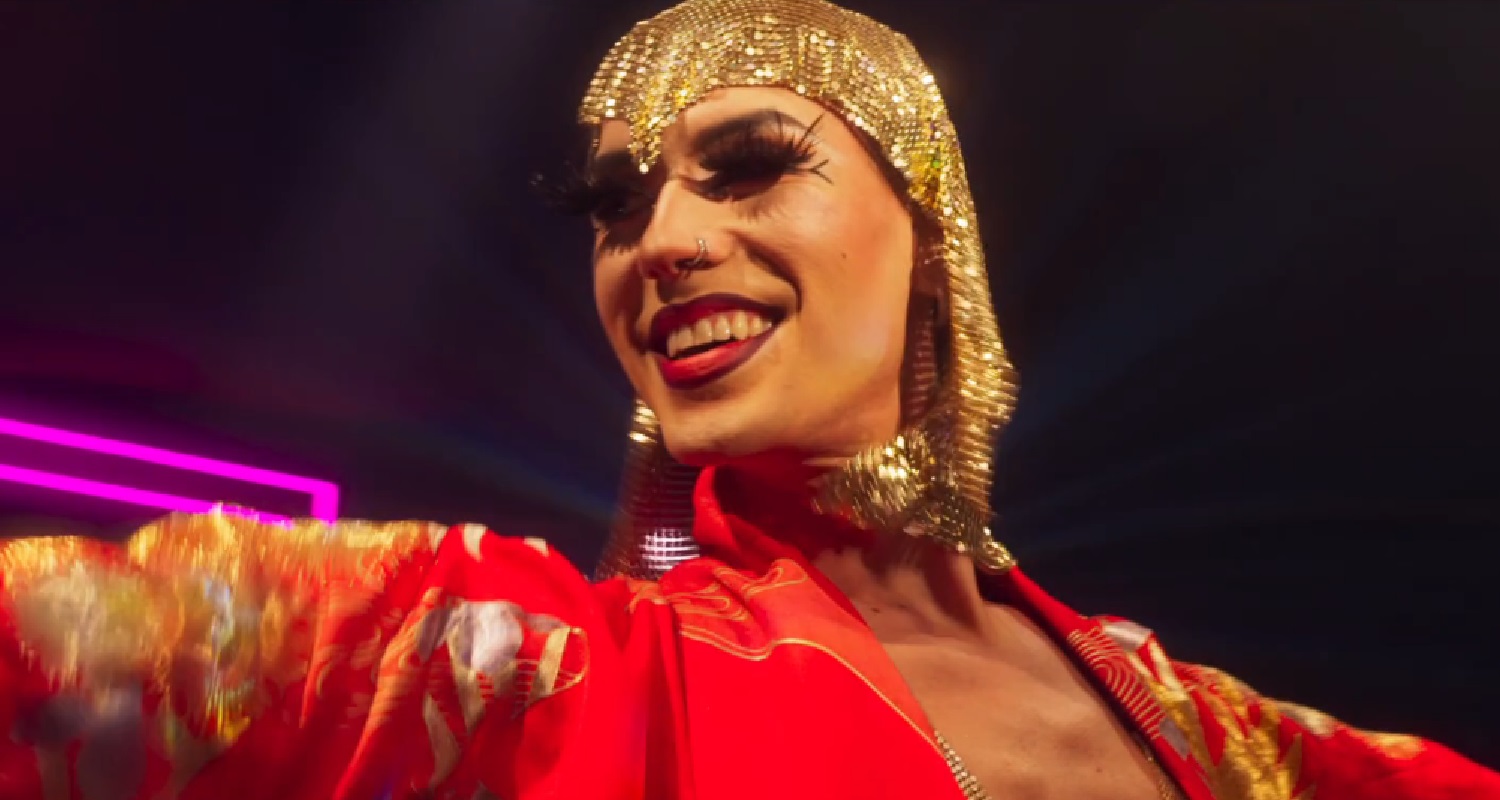Peach Paradise: ‘There are so many ways of being queer and Asian’
The Bitten Peach is the Pan-Asian queer collective shaking up the UK's cabaret scene.
By Will Stroude

Words: Will Stroude; Image: Netflix
A new Netflix Talent Fund documentary is shining a light on one of the UK’s most exciting new cabaret troupes, that places queer Asian performers at its centre.
The Bitten Peach is the Pan-Asian queer collective that has flourished since being founded in early 2019 with a mission “to empower the queer Asian community by providing safe spaces, diversifying Asian representation, and educating non-Asians on racial issues.”
The collective, which combines drag, cabaret and burlesque, is the subject of new Netflix Talent Fund documentary Peach Paradise, which delves deeper into the troupe’s work as well as the lives and identities of the artists within it.
The empowering doc is one of 10 short films granted funding from the inaugural Netflix competition to highlight some of the UK’s heard stories, and offers a fascinating look at the intersection between queer and Asian identities.
“I noticed when I was really starting to throw myself into the queer scene here that I was often the only Asian person around,” says non-binary drag artist ShayShay, who co-founded The Bitten Peach in 2019 alongside fellow performers Evelyn Carnate and Lilly SnatchDragon.
“Usually [I was] one of the only people of colour in general, but I was definitely always the only other Asian person.”
The Japanese-Irish performer continues: “As soon as we started doing [the shows], not only did the performers start coming out of every direction, but the audience started coming.
“We realised so quickly after all of those events sold out there was a need and a demand – not just from the audience perspective of ‘we want to see Asian queerness on stage’ – but also from the people involved in it.
“We want to be together, we want to make things together, we want to spend time together.”
Peach Paradise director Shiva Raichandani is a member of The Bitten Peach who stepped behind the camera to capture the collective’s experiences for the documentary.
Shane ‘ShayShay’ Konno (left) and Shiva Raichandani (Image: Getty Images, Dave Benett)
The filmmaker explains: “In the very white-dominated, cis-dominated industry that is the entertainment space, to be able to forge that path for [queer Asian people] is a true testament to the power of the collective and the family we’ve been able to create.
They add: “You don’t really get to see these stories in the mainstream, and to be given the creative control to be telling those stories in the way that we want to has been absolutely rewarding.”
ShayShay adds: “It was a nice circumstance in this case [for the film] to be made by someone who is actually a part of the collective, and not an outsider coming in to try and capture a world that they’re not actually a part of. It was very much a family effort.”
The sense of family and mutual support is something that is palpable throughout Peach Paradise‘s snappy 12-minute runtime.
As well as exploring ShayShay’s journey as a non-binary descendant of Japanese Internment Camp detainees, the documentary also touches on the struggle of Lilly SnatchDragon – “a queer, Asian, curvy woman” – to break through race and gender-based barriers in the drag scene.
“There are so many ways of being queer and of being Asian, and within the collective there are so many things we don’t have in common”, reflects ShayShay.
“[There are] lots of things we do share, but we grew up in different countires, we speak different languages, some of us are mixed, we really do represent many different types of being Asian. And what we’ve found actually, despite many of these differences, we have so much in common as just people trying to survive in the world in 2022.
View this post on Instagram
“I think a lot of the time when people who aren’t Asian come to the shows, they realise ‘Oh, I actually have a lot more in common with these people than I would have previously thought’.”
They continue: “I hope that audiences are able to see themselves and resonate with some of the things and people shown in the documentary, and that it may encourage them to review or reflect on some of the cultural and gender-based assumptions they make about race.
“I think as much as everyone doesn’t want to believe it, the media we’ve consumed has influenced the way we view the world, especially people of different cultures and races, and I hope people are inspired to rethink some of thoe assumptions that they’ve made.”
For Shiva, the message of Peach Paradise is simple.
“I think the one thing I’d love for everyone to take away [from the documentary] is queer joy”, they conclude. “I think a lot of our narratives and visuals and representation stems from violence and trauma. While we’re not discounting any of that, I think there’s a place to archive joy as well.
“That in itself has a lot of power.”
Peach Paradise is one of the 10 short films showing now as part of the Netflix Talent Fund programme.
